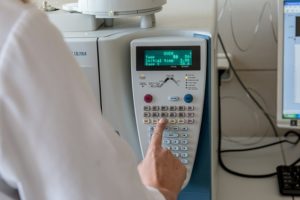
Last weekend, I spent a night in the Emergency Department of our local hospital with a family member. As we entered, she said, “This was not on my list of things to do!”
“A trip to the ER is never on anyone’s list!” I said, as we made our way down the hall.
While the ER is never a place most of us would choose to visit, we can learn from the experience. Here are some observations about a night in the ER that apply to life:
Stuff Happens
No matter how careful you are, some things are beyond your control. When I was learning to drive, my father always said, “You’ve got to watch out for the other fellow.” Sometimes injury results from no fault of your own. Other times, you make a misstep and find yourself somewhere you didn’t expect to be. Illness or injury crop up when least expected and usually at inopportune times. You can bemoan the situation, or you can adjust and move forward. The choice is yours.
Expect to Wait
One of the most difficult parts of a visit to the ER is the wait involved. You know before you arrive that you can expect a prolonged experience, yet are always hopeful this time will be speedier. In life, things rarely happen on our timetable. No one enjoys waiting, but sometimes it’s to your benefit. You may have a more positive outcome or see the resolution of a problem if you wait instead of pushing for something to happen. God often allows a waiting room sojourn to teach or protect. His plan is always better for you than any outcome you can manufacture on your own.

Patience is Required
In any area of life, practicing patience is probably one of the most challenging. The world conditions us to expect instant everything, so patience must be cultivated. Often impatience and anger are conjoined twins, overlapping and intertwined. Investigating the roots of impatience is the first step toward perfecting the art of patience.
Trust is Necessary
When you make yourself available to emergent care, you place your trust in someone with more knowledge and greater expertise than you possess.
In life, you place trust in others based on reputation or a presented persona. Sometimes, that trust is broken; other times, it proves correct. Don’t allow a broken trust to color your perception of everything and everyone. Especially avoid viewing God through a broken trust lens. He is always trustworthy and faithful.

Testing is a Given
Testing is a means of assessment. Even if a doctor is relatively certain about the best treatment for the injury, tests are necessary to confirm. You can’t diagnose a problem without assessing the situation. That is also true in other areas. If you are dealing with a communication, relationship, financial, spiritual, or any other kind of problem, you have to do the hard work of investigation to determine the underlying causes before you can formulate a plan to confront, improve, or eliminate the problem.
Practical Matters Need Attention Despite Pain
When you arrive at the hospital emergency department, unless unconscious, you still have to take care of “paperwork.” Answering questions, providing insurance information, verifying the accuracy of information already in the system, assessing the injury, relaying symptoms, and determining pain levels are all part of the process, even if you’re in great pain. In life, even if you’re wounded, practical matters of everyday life still have to be dealt with.
Pain is Part of the Process
Pain is indicator that something is amiss. Pain also serves as a warning. Without pain, you don’t know until it’s too late that something is malfunctioning or that injury had occurred. Pain in life often indicates growth and change. I still remember the “growing pains” of childhood, not only physically, but emotionally. Pay attention to pain. Learn from it. Act on it so healing can begin.

Others are More Seriously Injured
The groans, peppered with profanity, of the man in the next room punctuated the ER night. From his comments and those of his family, we were able to piece together his injury. Apparently a skill saw, coupled with baggy shorts, equaled a snag and drag episode that resulted in a gaping wound up the leg. While it was easy to think how dumb, we all experience times when we set ourselves up for injury. Perhaps you trusted someone again who has repeatedly betrayed or hurt you, or attempted something without the proper resources and then were hurt when things didn’t turn out as you expected.
Many people have deep wounds from a variety of sources, none of their choosing. But sometimes, people are so focused on themselves and their troubles they can’t see anything positive in their situation. A lesson from the ER that often applies to life: No matter what hard thing you are dealing with, you can always find something for which to be thankful.
Emotions are Involved
A trip to the ER is never without the display of emotions, yours or someone else’s. Pain, fear, anger, and frustration may all make an appearance—in the patient, but often with family members as well. Some people are hesitant to display emotions. Others overdo them, using emotions to manipulate. All emotions are God-given and for a purpose. Scripture encourages experiencing emotions, but also learning to control those that prove destructive.
Some People are Users or Abusers
Emergency department personnel have a label for those who use emergency care instead of going to the doctor’s office or only in an attempt to acquire pain meds – “frequent fliers.” Most of us encounter users and abusers at some point in life. At first, their neediness and control may trigger mercy and compassion, even love, but eventually you realize their focus is self-centered and you are being used. No matter how much you give, it’s never enough to satisfy. Beware frequent fliers.

Next Steps are Your Responsibility
“Treat and Street” is the motto of emergency department personnel. The goal of emergency care is pain relief, assessment, treatment, and release. An emergency is just the first step. What happens after an ER visit—making a follow up appointment with a doctor, wound care, filling prescriptions and taking as prescribed— is up to you. It’s the same in life. An emergent event that waves a red flag or flashes a blue light needs follow up. Pay attention. Ignoring an issue will not make it go away. Make sure you take the next steps. Move forward without delay.
“For I will restore health to you, and your wounds I will heal, declares the Lord” (Jeremiah 30:17 ESV).


4 Comments
Enjoyed reading this! I’ve had a few of these visits to the ER with family members and my family has had a couple with me! There are some important lessons you pointed out to all of us that have experienced these visits to the ER! Thank you for reminded us.
Thanks, Eddie!
This was so good and true….Love❤️
Thank you! God bless you.